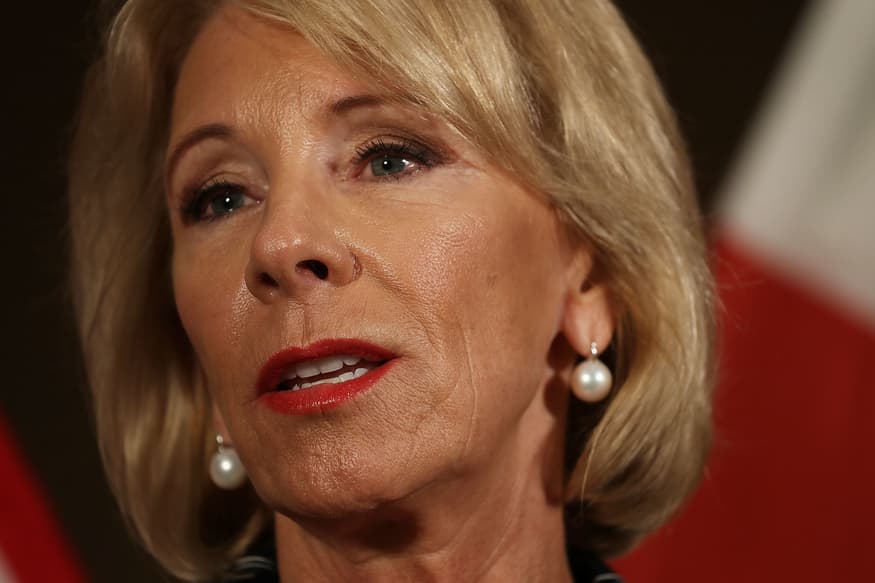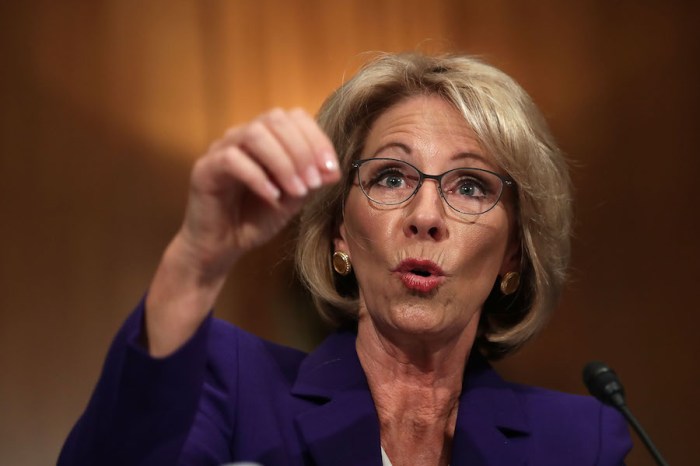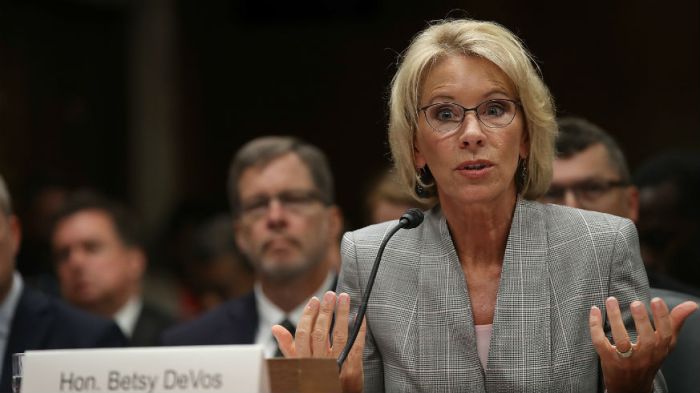Education Secretary Betsy DeVos is preparing new rules about sexual assault on campus, which will roll back several Obama-era protections for victims, allowing more recourse for the accused and liability protection for universities, the New York Times reported after obtaining a draft of DeVos’s proposed rules.
Victims-rights groups have decried the potential changes, while “men’s rights” groups praised them. Several universities are embroiled in sexual-assault cases, and a number had complained that the guidance issued by the Obama administration was unnecessarily burdensome. DeVos had taken meetings with “men’s rights” groups last year.
These are the key changes the new rules would make in Title XI, the law that protects students from discrimination, including sexual harassment.
1. They narrow the definition of sexual harassment.
The Obama administration’s guidance defined sexual harassment as “unwelcome conduct of a sexual nature,” that includes “unwelcome sexual advances, requests for sexual favors, and other verbal, nonverbal, or physical conduct of a sexual nature.” The new rules use a Supreme Court definition of sexual harassment that is geared toward repeat offenders and more extreme cases: “unwelcome conduct on the basis of sex that is so severe, pervasive and objectively offensive that it denies a person access to the school’s education program or activity.”
2. They allow for a higher standard of proof in investigations.
DeVos’s new rules would allow schools to choose the evidentiary standard they use in determining whether the accused: “preponderance of evidence” or “clear and convincing” evidence. The Obama administration’s guidance had required schools to use the preponderance-of-evidence standard, the lower of the two, in determining whether an accused person can be disciplined or expelled.
The new rules also propose that a school’s chosen evidentiary standard apply to all civil-rights investigations as well.
3. Universities would have less responsibility.
The new rules would hold schools accountable “only for formal complaints filed through proper authorities and for conduct said to have occurred on their campuses.” The current guidance, issued in 2001 requires that the “school knows, or reasonably should know, about possible harassment.” That applies to off-campus parties; DeVos’s rules do not.
A Department of Education spokesperson said the department was “in the midst of a deliberative process,” saying the Times’ reporting was “premature and speculative, and therefore, we have no comment.”
After the rules are formally proposed, a public comment period follows. After that, the policies can have the force of law without approval from Congress.


















